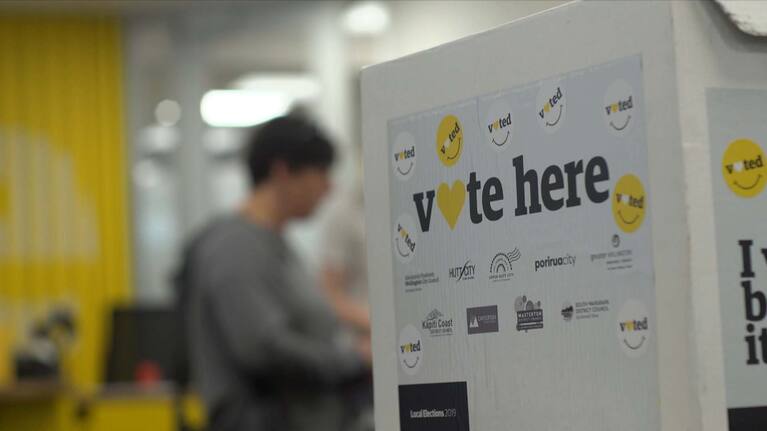As councils around the country grapple with ever-tighter budgets and larger increases in rates, Nelson Mayor Nick Smith says it’s time to consider moving to four-year terms.
Speaking to Q+A, the former local government minister and now-mayor said New Zealand’s three-year terms were unusual internationally.
Smith previously spent 31 years as a National MP, with multiple stints as a Cabinet minister.
He said: “When everybody’s looking for more efficiency because things are financially tight, I don’t think the public appreciates the cost of putting the bureaucracy of councils into standby mode during those three or four months as you approach an election.”
Smith said it was also unrealistic to expect councils to make much progress on issues around housing, climate change, and infrastructure in a three-year term.
“There would be a healthy dynamic of getting local council elected members to have a bit longer horizon.”
Meanwhile, cash-strapped councils are welcoming a long-term funding option from the Government to deal with infrastructure challenges. (Source: 1News)
Prime Minister Christopher Luxon has indicated the coalition Government planned to propose a referendum for four-year Parliamentary terms at the next election.
Smith said if either local or central government were to move to a four-year term, the other should too to avoid confusion.
Others argue any extension of terms must come with additional reforms to prevent giving Parliament too much power – for example, the reintroduction of an upper house.
Local govt voter turnout in the spotlight — again
Term lengths is one issue Local Government NZ (LGNZ) will be seeking the public’s feedback on in a paper it will be releasing on Thursday.
Smith, who has been appointed chairman of LGNZ’s Electoral Reform Group, is investigating ways to increase voter turnout.
At the last council elections, only 41% of voters nationwide cast a ballot.
LGNZ president and Selwyn District mayor Sam Broughton said the issue was critical for local councils, with “unacceptably” low levels of voter turnout. His organisation, the group representing councils, said there was now “no future in local elections by post”.
Broughton said: “We hear some people suggest their only interaction with local government is when they receive their rates bill; however, this is far from the truth.
“Virtually everyone uses local roads, uses drinking water and wastewater systems, visits parks or reserves, uses rubbish or recycling facilities, or enjoys swimming pools or libraries.
“We need more people to have their say on who they want to represent them around the council table, as councils are making decisions that impact everyone’s lives every day.”

Meanwhile, Smith said there was an “urgent challenge” to move away from postal voting.
“Our paper canvasses issues that have been discussed for years. An urgent challenge, given most councils are conducting their elections by post, is the collapse in what New Zealanders refer to as ‘snail mail’,” he said in a media release.
“We need to move quickly to find a safe and reliable replacement to postal voting, while recognising that alternatives such as online voting come with considerable security and cost concerns that are not easy to overcome.”
Q+A with Jack Tame is made with the support of New Zealand On Air









